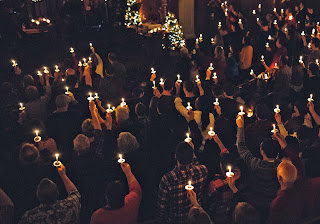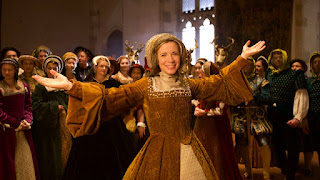It’s one of the most beloved Christmas melodies. But how much do you know about the timeless carol ‘Hark! The Herald Angels Sing’?
As is the case with a lot of vocal music, the lyrics and melody for this beloved carol came from two different sources.
The lyrics for ‘Hark! The Herald Angels Sing’ were written by Methodist Charles Wesley in 1739, and they first appeared in the collection Hymns and Sacred Poems. But Charles Wesley’s words were sung to a somewhat gloomy melody.
Today, we sing Wesley’s words to the best-known, joyous tune written by one, Felix Mendelssohn.
It’s one of the most widely sung carols, a favourite among buskers and choristers. And yet, you may well be unaware of the fascinating story behind it.
It’s angelic, it’s joyful, it’s triumphant. It is without doubt the best descant of all time.
The Christmas carol ‘Hark! The Herald Angels Sing’ was written by Charles Wesley (who composed over 600 hymns), while the melody was written by Felix Mendelssohn. We have also decided its descant, written by the late Sir David Willcocks, is one of the greatest descants ever written.
Here’s why: firstly, it really doesn’t mess around. As soon as we reach the final ‘Hail the heav’n born Prince of peace’ verse, we’re knocked over the head with the angelic sound of the sopranos hitting some seriously sparkling top Gs.
Then, the choir descend on ‘Mild, he lays his glory by’ – but the timpani comes in with a threatening drumroll, so we know it’s not time to go home yet (in a musical sense, y’know).
Then there’s the final line, screamed out in festive exultation: ‘Glo-o-o-ry to-o-o the new born KIIINNG!’.
What is ‘Hark! The Herald Angels Sing’ actually about?
Well, the purpose of the carol was to explore the spiritual theme of ecotheology, linking Christ’s intention to redeem not only humankind, but nature as a whole.
Hear it in the words ‘Peace on earth and mercy mild, God and sinners reconciled’ in verse one, and ‘Light and life to all He brings, Ris’n with healing in His wings’ in verse three.
Are there other adaptations of this carol?
Wesley’s original words for the carol began with the lyrics, ‘Hark how all the Welkin rings, Glory to the King of Kings’, before being rewritten by George Whitefield in 1754 – to begin with the couplet we know today – and again in 1782, giving us the complete text we sing now.
The tune we know today was adapted by the English composer William H. Cummings from a melody in Felix Mendelssohn's 1840 choral cantata Festgesang.
Today, the version of ‘Hark! The Herald Angels Sing’ that we’re familiar with generally stays true to the fine details of Cummings’ adaptation (particularly its harmonisation).
But over the years, composers have written descants for the final verse. Perhaps the most famous is the one written by Sir David Willcocks in 1961 for the annual Festival of Nine Lessons and Carols at King's College, Cambridge.
So, what are the words to the most recent version of this jubilant piece?
Lyrics to Hark! The Herald Angels Sing
Hark! The herald angels sing,
“Glory to the newborn King!
Peace on earth and mercy mild,
God and sinners reconciled.”
Joyful, all ye nations rise,
Join the triumph of the skies,
With th’angelic host proclaim:
“Christ is born in Bethlehem.”
Hark! The herald angels sing,
“Glory to the newborn King!”
Christ by highest heav'n adored,
Christ the everlasting Lord!
Late in time behold Him come,
Offspring of a Virgin's womb.
Veiled in flesh the Godhead see,
Hail the incarnate Deity,
Pleased as man with man to dwell,
Jesus, our Emmanuel.
Hark! The herald angels sing,
“Glory to the newborn King!”
Hail the heav'n-born Prince of Peace!
Hail the Son of Righteousness!
Light and life to all He brings,
Ris'n with healing in His wings.
Mild He lays His glory by,
Born that man no more may die,
Born to raise the sons of earth,
Born to give them second birth.
Hark! The herald angels sing,
“Glory to the newborn King!”


















 Think back through history, and how England was known as “Merry old England” at the time this song originated.
Think back through history, and how England was known as “Merry old England” at the time this song originated. fog and even more congenial frost.”
fog and even more congenial frost.”




